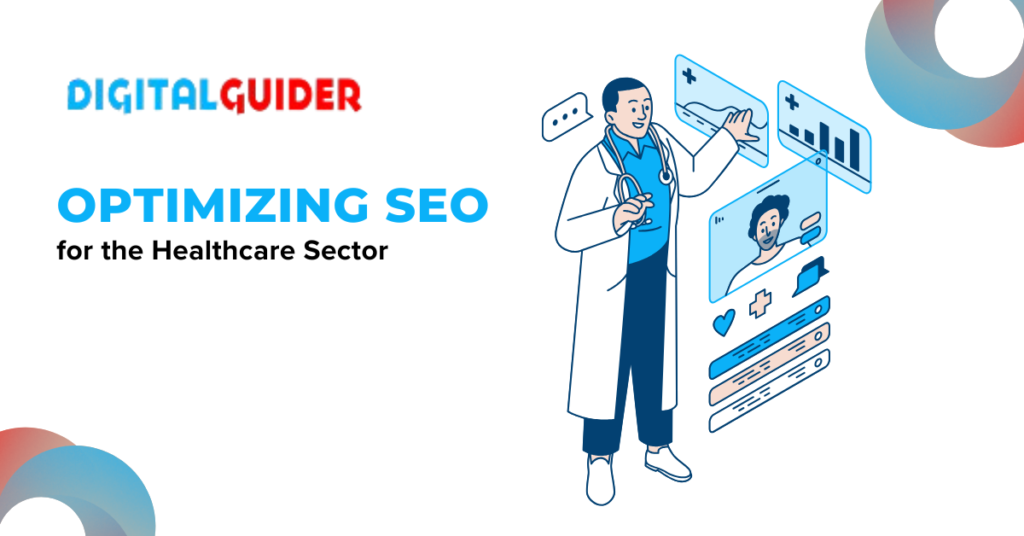In today’s digital era, healthcare providers and medical businesses must establish a strong online presence to attract and retain patients. Partnering with an experienced SEO company Toronto can help healthcare organizations optimize their websites to appear prominently in search engine results, making it easier for potential patients to find their services. Search Engine Optimization (SEO) plays a crucial role in ensuring online visibility and patient engagement. This article explores key SEO strategies tailored specifically for the healthcare sector.
Importance of SEO in Healthcare
The healthcare industry is highly competitive, with countless hospitals, clinics, and medical practitioners competing for online visibility. SEO helps medical businesses improve their website rankings, drive organic traffic, and ultimately increase patient inquiries and appointments. As more people turn to Google to search for healthcare providers, it is essential to optimize your website to meet their needs effectively.
Key SEO Strategies for Healthcare Websites
1. Keyword Research and Optimization
Effective SEO starts with identifying the right keywords that potential patients are searching for. Use tools like Google Keyword Planner, Ahrefs, or SEMrush to find relevant search terms. Focus on:
- High-intent keywords such as “best pediatrician near me” or “emergency dentist in [your city].”
- Long-tail keywords, which are more specific and have less competition, like “affordable knee replacement surgery in [your location].”
- Medical service-related keywords, including terms like “telehealth consultations” or “dermatologist for acne treatment.”
2. Local SEO for Better Visibility
Since most patients look for nearby healthcare services, local SEO is critical. Implement these strategies:
- Claim and optimize your Google Business Profile with accurate information, including your address, phone number, and operating hours.
- Encourage satisfied patients to leave positive reviews on Google and healthcare directories like Healthgrades or Zocdoc.
- Optimize location-based keywords in your content, such as “top-rated cardiologist in [your city].”
3. Mobile-Friendly Website Design
A significant portion of healthcare-related searches happens on mobile devices. Ensure your website is mobile-responsive by:
- Using a responsive design that adapts to different screen sizes.
- Improving page load speed to prevent high bounce rates.
- Simplifying navigation so users can easily find important information like contact details and appointment booking forms.
4. High-Quality Content Creation
Content marketing is an essential part of healthcare SEO. Publish valuable, informative, and medically accurate content, such as:
- Blog posts on common health concerns and treatments.
- Patient testimonials and success stories.
- Frequently asked questions (FAQs) about medical procedures and conditions.
Additionally, ensure that all content complies with healthcare regulations, such as HIPAA, and provides factual, trustworthy information to establish credibility.
5. On-Page SEO Best Practices
Enhancing on-page SEO improves your website’s ranking. Follow these guidelines:
- Optimize title tags and meta descriptions with relevant keywords.
- Use header tags (H1, H2, H3) to structure content properly.
- Add alt text to images for better accessibility and SEO.
- Include internal links to relevant pages to enhance user experience and search rankings.
6. Technical SEO for a Smooth User Experience
Technical SEO ensures that your website functions smoothly and efficiently. Key aspects include:
- Implementing HTTPS for security and patient trust.
- Fixing broken links and errors to enhance site performance.
- Creating an XML sitemap to help search engines index your site effectively.
- Using structured data (schema markup) to provide search engines with additional context about your healthcare services.
7. Backlink Building from Reputable Sources
Backlinks from authoritative medical and healthcare websites can significantly boost your search rankings. Some ways to build high-quality backlinks include:
- Guest posting on reputable healthcare blogs.
- Getting featured in online medical directories.
- Partnering with local businesses and medical associations for link-building opportunities.
8. Social Media and SEO Integration
Although social media doesn’t directly impact SEO rankings, it can drive traffic to your website. Maintain an active presence on platforms like Facebook, Instagram, and LinkedIn by:
- Sharing informative health-related content.
- Engaging with patients through comments and direct messages.
- Promoting blog posts and service updates.
Conclusion
SEO is a game-changer for the healthcare sector, helping medical professionals and institutions connect with patients efficiently. By implementing strong keyword strategies, optimizing for local searches, improving website functionality, and creating high-quality content, healthcare providers can significantly enhance their online presence. For healthcare organizations looking to expand their reach beyond local boundaries, partnering with a Digital Marketing Agency USA can provide the expertise needed to implement broader SEO strategies and target a wider audience.







